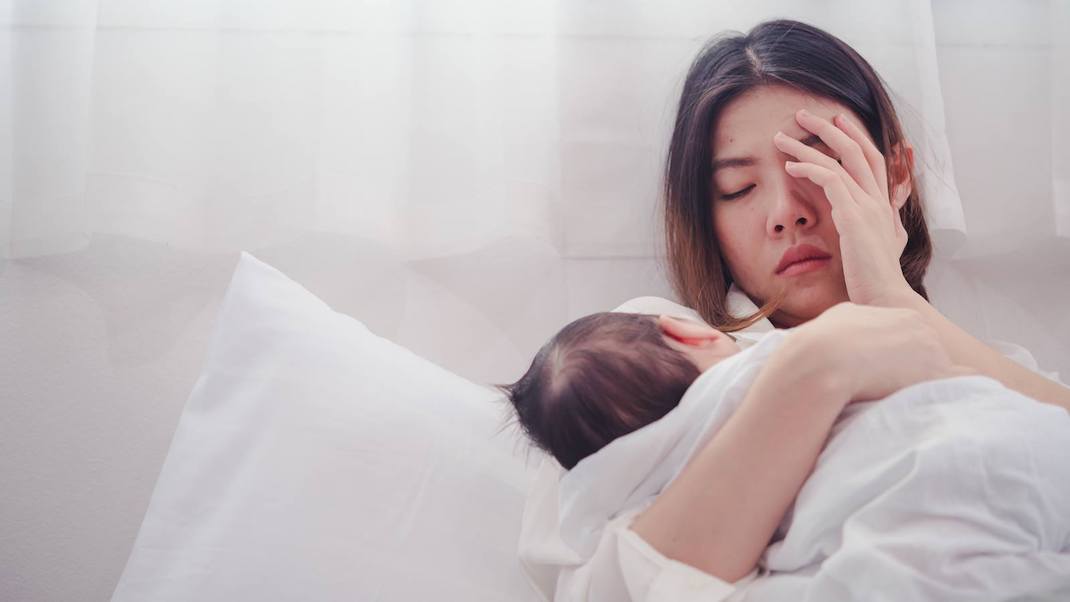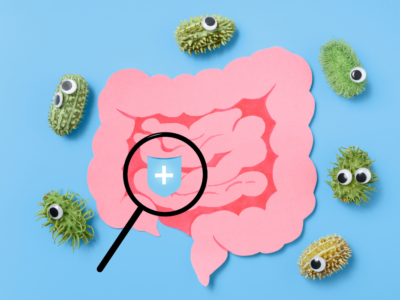When I was pregnant, I had a very specific vision of motherhood. A fairy tale that began with giving birth and immediately falling madly in love with my baby boy. I would bring him home and magically transform into a domestic goddess, champion breast-feeder, and talented Pinterest crafter. I would make my own baby food, love on my son 24/7, always lay on the floor next to him during tummy time, and happily bring him everywhere, effortlessly floating from mommy and me to music class with a permanent smile on my face as I told all my friends how amazing it was to be a new mom.
When I gave birth and became a mother, I quickly learned my vision was not a reality. I cried. A lot. Anxiety paralyzed me. I never wanted to leave my bed. I had no interest in the adorable baby boy I brought home from the hospital. I hated breastfeeding. My son struggled to latch. It was too hard to keep up with pumping every three hours when all I wanted to do was sleep and never leave my bed. I quit after five days. I went on antidepressants for the first time. And with the exception of therapy appointments twice a week, I barely left the house for six months unless I was forced to.
I knew something wasn’t normal very quickly—as in the day after I brought my son home from the hospital. I started having scary thoughts about wanting to get sick or hurt so I would have to go back to the hospital and never have to take care of a baby. I waited nine months to meet my baby and begin the role I thought I was made for, and now I was fantasizing about and plotting my escape.
Luckily, these thoughts quickly triggered alarm bells in my head, but they also sparked confusion and shame. I didn’t understand what was happening to me and why I didn’t magically fall in love with my baby and being his mom like I believed I would—like I believed every new mom did. I would ask myself on a never-ending loop, “What’s wrong with me? Why do I suck at motherhood? Was I the only woman born without the mom gene? Why don’t I want to be my son’s mommy? Why am I the only mom I know who doesn’t love her baby? What would others think if they knew? Why didn’t anyone tell me I could feel like this?”
No answers would come, but the shame kept piling on. Somehow, I managed to fight through the merry-go-round of scary thoughts and feelings of shame to make the decision to say something to my mom (a therapist), who was staying with me at the time to help out. I like to say I was lucky that day I promised myself that no matter what, I would speak up and tell my mom something was wrong before I tried to go to bed that night.
After dinner, as I tried to gather up all the courage I could find, my mom approached me: “Jennifer, what’s wrong?” The tears and the words to describe how I was feeling and what I was thinking came pouring out. I felt some temporary relief. To this day, my mom will tell you she said something when she did because she physically witnessed the light go out from behind my eyes. She watched her daughter become a ghost of herself and disappear right in front of her (I still get chills and a lump in my throat when I say or write that).
That day started a several month-long scavenger hunt to find the help I needed to feel like myself again. My mom promised me that day that she would never let me stay like that. She promised me that one day my son would become my little buddy. Back then when I was suffering, I didn’t believe her. I thought I would stay in that dark place forever. I remember walking laps (unshowered and in the clothes I slept in the night before) around my neighborhood (the movement calmed the anxiety), sobbing on the phone to her that I would never get better. But, I did get better. It took time and patience, and having to stick to a treatment plan that included antidepressant medication and weekly therapy with a psychologist who specialized in maternal mental health, but she was right.
There was nothing “normal” about becoming a mother. I spent most of the first year of my son’s life as a mom fighting an illness. I became a “medicated mommy” a few weeks in. I had to let others step up and take care of my baby so I could take care of myself. But then again, I don’t think anything about motherhood can be labeled as normal, because no two experiences will ever be alike. And motherhood changes for each of us over time. Seven years later, I will check in with my therapist, but I don’t see her regularly anymore. I do still take the same antidepressants and I no longer feel any of the shame that followed me wherever I went after bringing my son home from the hospital.
There is also nothing “normal” about postpartum depression, anxiety, or any of the pregnancy or postpartum mental health illnesses. I say this because these illnesses are not one-size-fits-all and each woman’s experience is unique to her. This of course makes it even harder to recognize when something might be wrong after having a baby. So many of us confuse the feelings that accompany these illnesses for what we believe are just “normal” new mom exhaustion, overwhelm, and worry. I knew something was wrong because I couldn’t find joy in anything. The feelings I had were so intense—more intense than a bit of worry and overwhelm and exhaustion from caring for a baby. My ability to function and take care of myself and others was severely impacted.
These are the ways we assess what’s normal and what needs more attention and professional care. If you feel like something is wrong, but you are not sure, I invite you to visit Maternal Mental Health in Minutes, the new educational video library I just launched (breaking down pregnancy and postpartum mental health illnesses and treatments), which can help you make sense of your feelings and what to do about them. And for more connection, support, and resources, visit Motherhood Understood.



